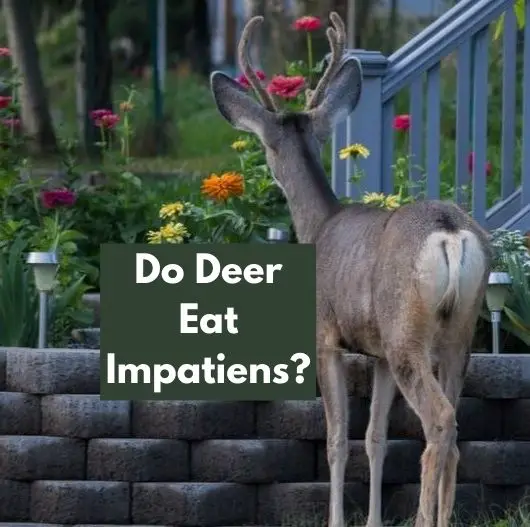If you’re like most gardeners, you probably have at least a few impatiens in your yard. Impatiens are beautiful flowers that add a touch of elegance to any garden. But do deer eat impatiens?
The answer is yes – deer will eat the blooms, buds, leaves, and stems of impatiens. Deer are attracted to impatiens because they’re usually well-watered, fertilized, and are tasty to them.
Considering that a single deer can eat several pounds of plants each day, you can see how deer eating impatiens can really do some serious damage to your garden!
In this article, we’ll discuss how to stop deer from eating your impatiens and why they eat them in the first place.
Why Do Deer Eat Impatiens?
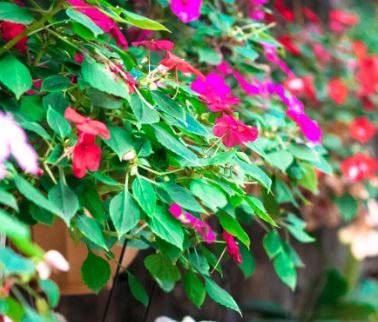
As we covered, deer will eat every part of impatiens (stem, leaves, blossoms, and all) when they’ve got the chance.
But why do they do this?
Deer like lush plants that are well-watered and fertilized, and impatiens check every box.
They also have sweet leaves which are very palatable to deer, and impatiens are easy on a deer’s digestive system.
The smell of impatiens is also very enticing to deer, and it doesn’t have any natural predators so it’s rather plentiful.
Deer can do some serious damage to a large amount of impatien plants single sitting if they’re hungry enough!
This was confirmed in a 1999 study on deer plant eating habits by Cornell University.
Flowers like impatiens contain water, sugar, and nutrients, which makes them an ideal food source for deer.
And don’t think that your newer impatiens are safe either: deer actually prefer new growth because they’re more tender.
Additionally, deer will consume a wide variety of foods like impatiens based on opportunity.
They’re usually planted in the ground or in pots, so they’re easy for deer to access.
In fact, some folks specifically put impatien plants around their food plots to attract deer.
If you’re not convinced, leave some potted impatiens out or plant some, and wait to see what happens!
How Do I Keep Deer From Eating My Impatiens?
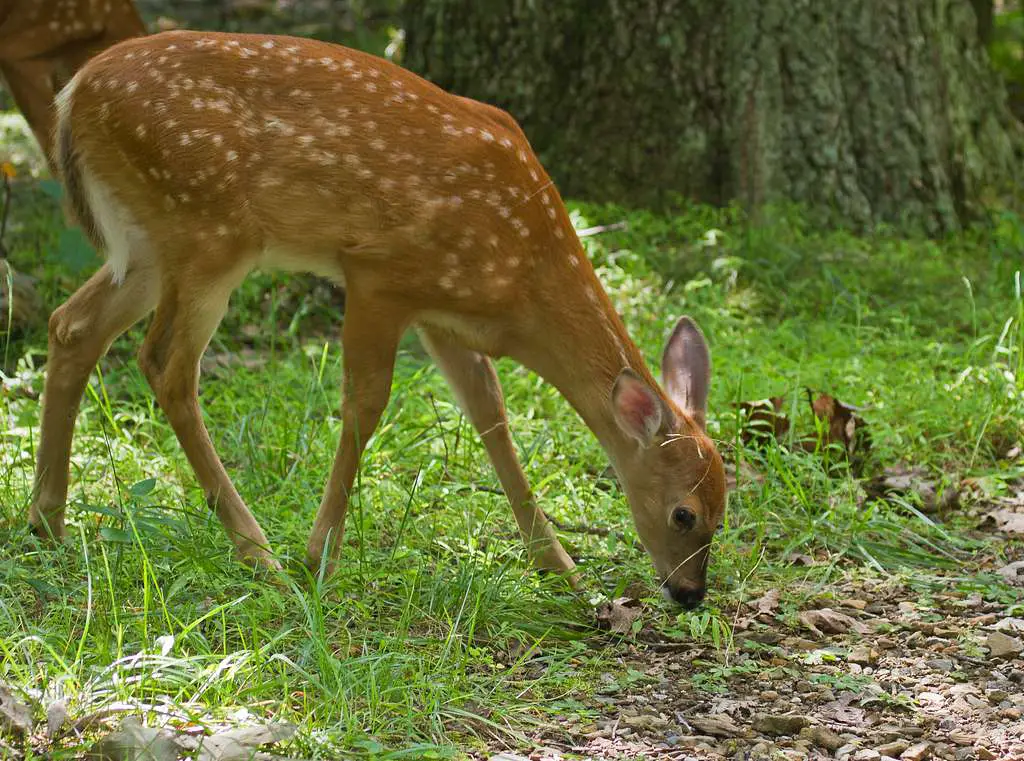
There are a few things to keep in mind when you’re protecting impatiens from deer: their habits, your scent, repellent options, and when you plant it.
Deer will eat nearly anything if they’re hungry enough, so your main goal is making your garden as least inviting to deer as possible.
Check out our guide on how to keep deer from eating plants where we cover 25 quick and easy tips for keeping hungry deer out of your garden.
Know Their Habits
Deer are selective feeders and creatures of habit.
If they’ve eaten your impatiens before, then moving them to a spot away from other greens that may tempt them is a good defense.
If you’re planting impatiens for the first time, be sure to keep them away from areas that you know deer have been attracted to previously.
You can also place the impatiens off the ground where deer cannot reach them easily, like a hanging basket.
Leave Your Scent
Deer have a keen sense of smell that allows them to smell human scent farther than bloodhounds can, and can smell up to six different scents at once.
Deer won’t eat food like impatiens if they have a strong human scent on them, so you can use this to your advantage.
Human hair is a great way of keeping your scent on impatiens to prevent deer from eating them.
Dog hair is another good option.
Consider Deer Repellent Options For Impatien
If you have lots of deer in your area, think twice about leaving things to chance.
There are quite a few options for deer repellents you can use in your garden, which we’ll cover next.
Plant Deer-resistant Flowers or Plants By Your Impatiens
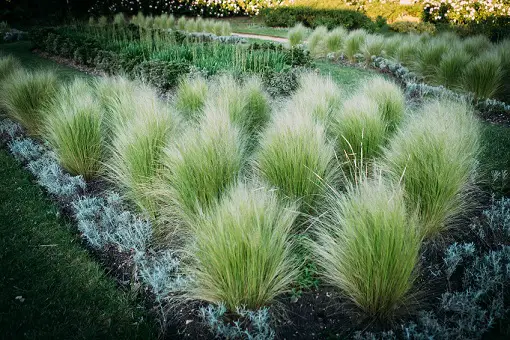
You can surround your impatiens with plants and flowers that deer don’t like in order to keep them away.
The strong scents that they give off deter deer from the tasty scent of your impatiens.
A few plants that repel deer are daffodils, marigolds, iris, oregano, rosemary, lamb’s ear, and ornamental grasses.
Homemade Deer Repellent
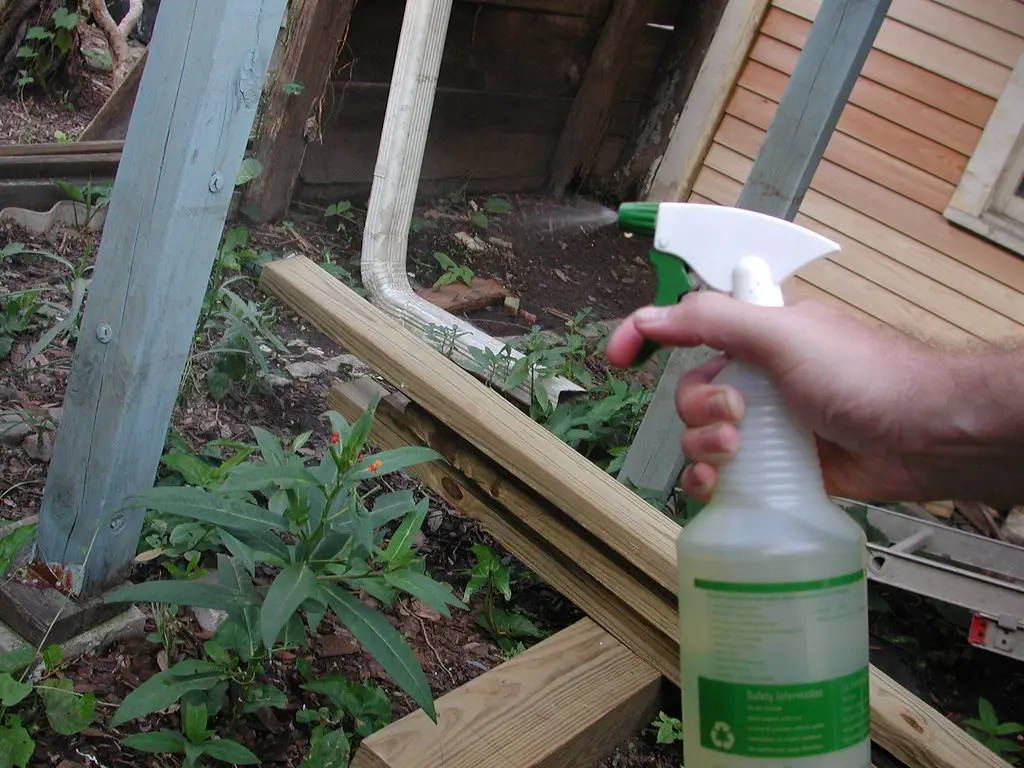
Many gardeners make their own DIY deer repellent using household items and spray it on their impatiens to keep deer away.
To make your own, simply blend 3 eggs, 3 tbsp milk or yogurt, 3 crushed garlic cloves, 3 tbsp cayenne pepper, and 2-3 cups of water in a blender.
If possible, leave this at room temp for 24 hours so it can “steep”. Caution: this will stink! (That’s the point, though).
Put the homemade deer repellent into a spray bottle and make sure to use plenty of spray on your impatiens after it rains or when there’s a lot of morning dew.
Be sure to spray the entire plant.
Once it’s dry you won’t be able to smell it, but the deer sure will, and it’ll keep them from munching on your impatiens!
Mint-Scented Deer Spray
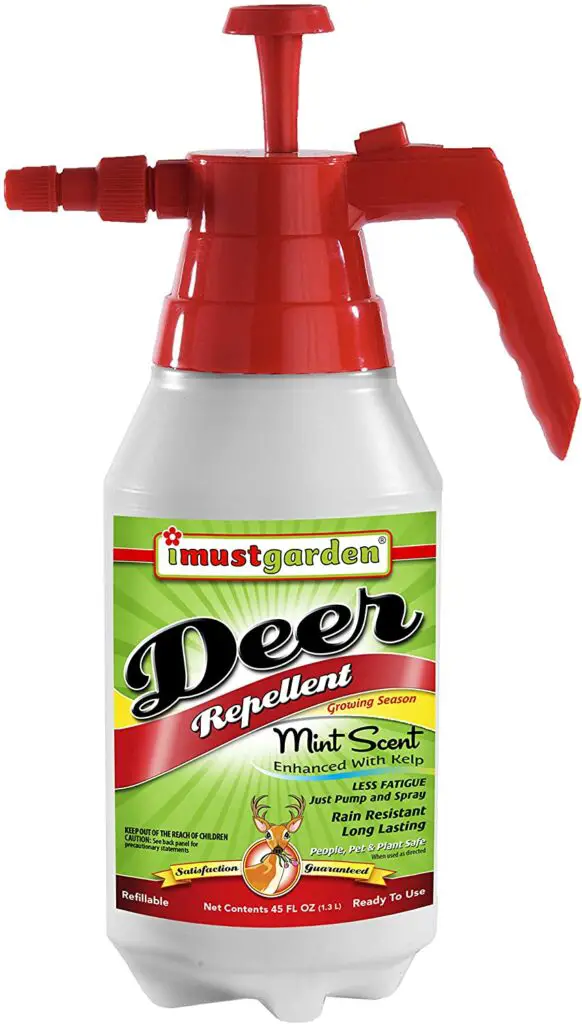
Mint and other strong scents are a turnoff for deer, so using a mint-scented deer spray will help protect your precious plants and flowers.
Use Shiny, Bright, & Flashy Objects
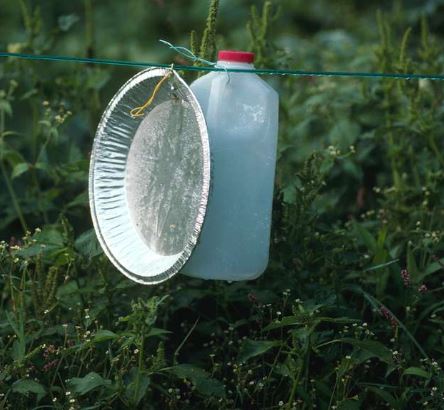
Deer are very sensitive to any type of change in their environment, from sound, smell, or sight.
You can hang old CDs on strings along fishing line around your garden, or pie tins work great too.
Another alternative is to use metallic streamers or mylar balloons and hang them from the corners of your garden.
The wind will blow these items around and also make noise, which will keep deer away from impatiens.
Windchimes
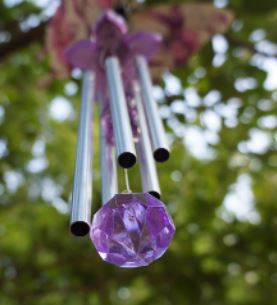
The random sound of wind chimes or bells can keep deer on high alert, so use these to your advantage.
Repel deer from your impatiens by hanging wind chimes from trees near your garden.
Deer Netting
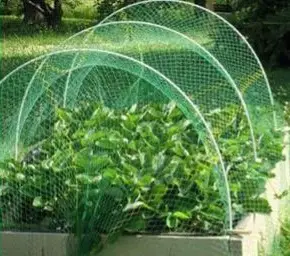
Another option is to use deer netting on your impatiens, which is more cost-effective and way easier than installing a full-on fence.
This allows you to protect individual plants that might be particularly tempting to deer, and you can set it up in minutes.
Install A Scarecrow Or Lawn Ornaments
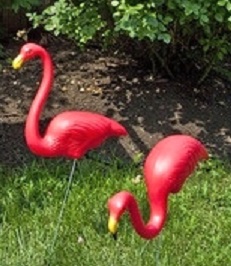
Objects in your garden like a scarecrow, garden gnomes, or pink flamingos will liven up the scenery while also protecting your impatiens from being eaten by deer.
Deer don’t realize these objects are harmless to them and will steer clear of your garden when they take notice.
Be sure to move them around occasionally so they’ll stay effective.
Ultrasonic Noisemakers
Motion-activated ultrasonic noisemakers emit high-frequency sounds that deer can hear but humans can’t.
They’re effective at scaring deer away from your impatiens and other plants in your garden and don’t run afoul of noise ordinances.
Motion Lights
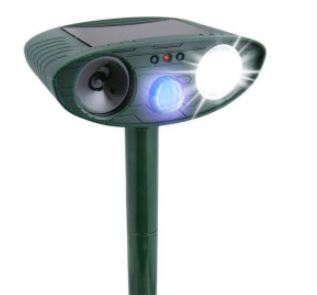
Motion-activated flashing lights will keep deer on their toes and away from your impatiens by scaring them off.
Deer will acclimate themselves to deterrents over time, but motion-activated options are never predictable, so they will continue to provide results.
Lighting options also have a dual-benefit of providing you extra security against people and other critters as well.
Motion-Activated Sprinklers
There are motion-activated sprinklers that are often solar-powered so they’re low-maintenance and easy to install.
They’ll give deer a blast of water when they get too close to your impatiens, sending them running in the opposite direction.
These work great for other critters, too!
Fencing
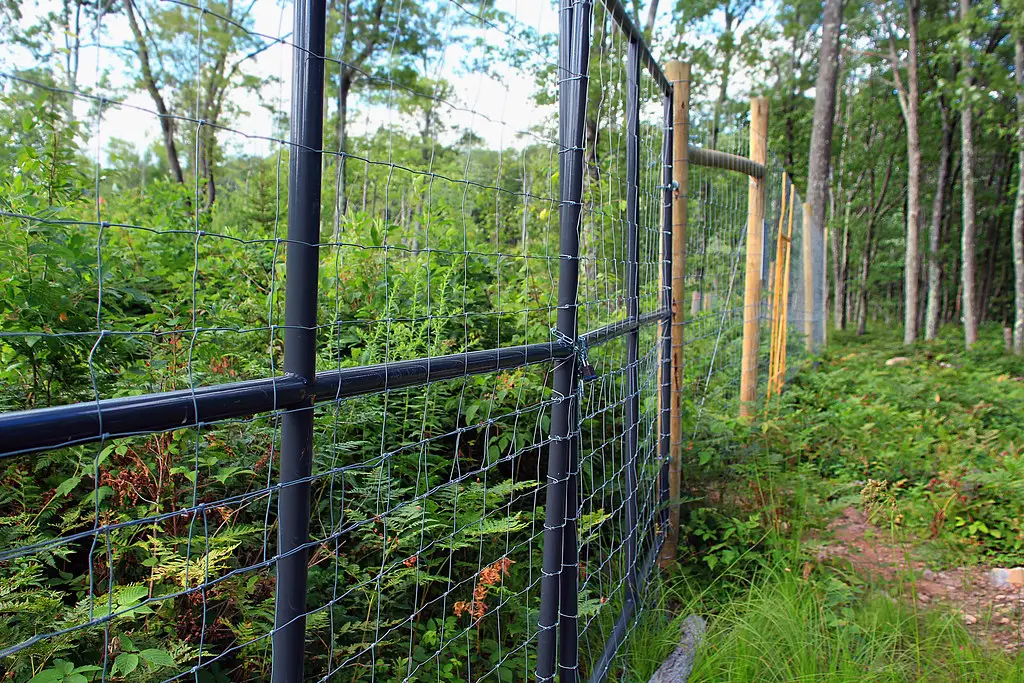
Deer can jump as high as eight feet, so deer fencing for gardens needs to be at least that tall.
Some gardeners choose to make a fenced “dome” in order to keep deer away from their impatiens!
Clearly this is a bigger task than the other alternatives we’ve mentioned, so only do this as a last resort.
You may consider an electric fence which doesn’t need to be nearly as tall, but make sure that your local zoning laws allow them.
All of these are great and humane solutions to ensure that deer stay away from your impatiens.
Do Deer Eat Impatiens? Wrapping Things Up
So, do deer eat impatiens?
The answer is yes!
Deer will eat as many impatien flower plants as they can, and they benefit from the vitamins and minerals found in these flowers.
Fortunately, there are things you can do to keep them away like using fences, motion-activated devices, or reducing the enticing scent that your impatiens give off to ward off deer from eating them.
Have any observations to add to the discussion? Be sure to let us know in the comments below.
Check our our other helpful wildlife guides while you’re here:
- How long do deer live?
- Can deer eat orange peels?
- Do deer eat rutabaga?
- Do deer eat buckwheat?
- Do deer eat black walnuts?
- Do deer eat hickory nuts?
- Do deer eat Bermuda grass?
- Do deer eat corn on the cob?
- Do deer eat pumpkins?
- Do deer eat mums?
- Do deer eat roses?
- Do deer eat tomatoes?
- Do deer eat sunflowers?
- Do deer eat tulips?
- Do deer eat rhododendron?

